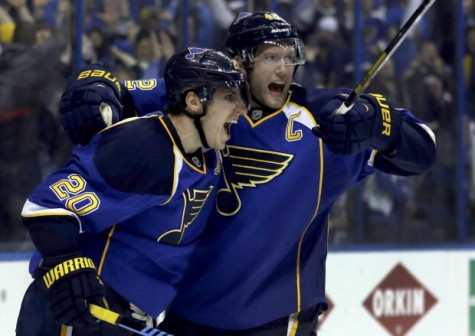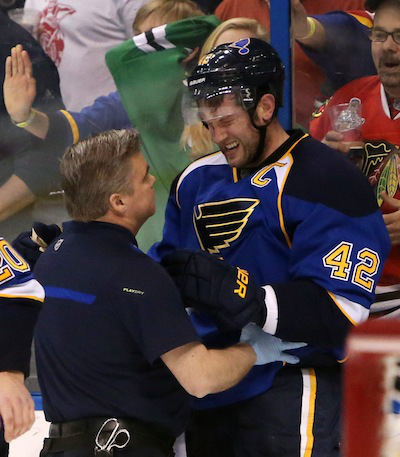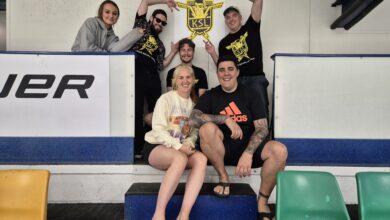St. Louis Blues vs. Chicago Blackhawks Series: A Story of Bounces

The playoffs are a strange animal. A friendly bounce here can result in a win, but an unfavorable bounce there and all of a sudden that win becomes a loss. And more often than not a team can put him roughly the same effort, but come out on different sides of the win column after falling victim to those bounces.
The Blues know this fact very well, as they have put in a more or less consistent effort against the Chicago Blackhawks in the first four games but are still only tied 2-2. But even that’s surprising, considering the Blues team that showed up to the playoffs was a far cry from the one that finished the regular season.
In the first two games of the series the Blues looked transformed. Most, if not all, of their former ailments seemed to be just that – former. Home ice proved to be the best medicine for St. Louis as the team’s offensive struggles finally disappeared, with goals coming from some unlikely sources.
Adam Cracknell, Chris Porter and Barret Jackman – a trio that had 18 points combined in the regular season – had five points between them in the first two games. The timeliness of their goals was also a major change from the regular season as both of their victories came in come-from-behind fashion (they lost seven of their final nine games and never trailed in their two wins).
Maybe one of the most important variables in St. Louis’ winning formula was the much improved play of Ryan Miller. After starting off well with his new team, he really struggled down the stretch, but was a big reason the Blues were able to win the first two games of the series.
But most of all St. Louis allowed itself to get some lucky bounces with some great play. They controlled the pace of play, kept pressure on the Hawks defense, and punished them physically – all of which helped create some luck.

(Photo by Chris Lee/AP Photo/St. Louis Post-Dispatch)
But then the series shifted to Chicago where the luck seemed to dry up. Despite playing what was, all things considered, a great game three, the Blues fell 2-0 to Chicago. The lone goal Miller did allow was soft and could have been prevented had Kevin Shattenkirk stepped up on Jonathan Toews.
Then in game four the Blues didn’t do themselves any favors. They had five power play opportunities but were only able to convert once, which was a big difference maker considering the game ended in a 4-3 final.
They also fought back from a 2-0 deficit to take a 3-2 lead, only to relinquish that lead and eventually the game. Again, another powerplay goal or two earlier on could have had a huge effect on the final outcome.
That’s where the Blues need to improve in the final games of the series. No team can control the bounces, but playing well and efficiently can be a big help. Home ice in game five will undoubtedly be a big advantage for St. Louis, but it’s how the team can respond in game six on the road that will go a long way in deciding the series.
Side note: Brenden Morrow is out for the remainder of the series with a foot injury, and David Backes is still questionable after receiving a hit to the head by Brent Seabrook.

